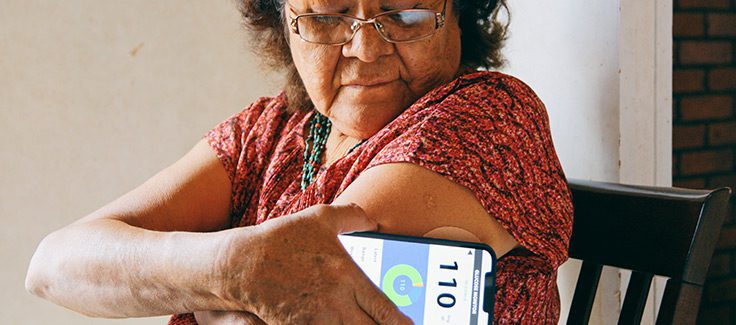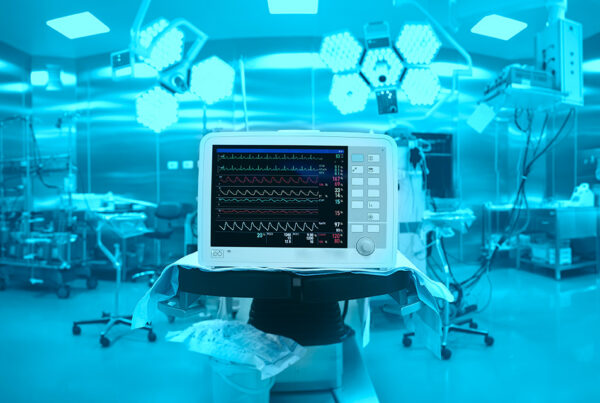The integration of technology in medicine is advancing apace, and with the arrival of smart medical devices the health sector has made a sharp turn. It has led to rapid development of telemedicine and precision medicine, providing patients with a high-quality, holistic service.
Doctors can use these wireless devices to monitor their patients’ health in real time, compiling, analyzing, and storing data that we can access from our smartphone, tablet, or computer.
Smart medical devices were created to increase human customer-care capabilities, rather than replace them. A key feature is that they can be used both by doctors and by the patients themselves. Below are some of the advantages of this innovative technology:
- They allow various types of diagnosis without requiring patients to leave the house
- They are vital for people with medical conditions that need constant follow-up, such as diabetes and heart failure
- They provide advice for patients to facilitate the required treatment
- They efficiently manage available medical resources, reducing service costs
- They help people look after themselves physically
- They help reduce diagnostic errors
- They are intuitive, meaning they are easy for anyone to use
- They improve the patient-care experience
Hospitals in the region are incorporating new technologies. Rates of Internet and smartphone usage have grown considerably, making digital medical services more practical. According to a recent study by the Canadian company Netscribes, the smart hospital market in Latin America is expected to have a significant 15.4% compound annual growth rate (CAGR), and to reach a market size of US$800 by 2023.

Various smart medical devices are designed primarily to provide quality patient care and well-being. The global market for this type of technology has been segmented by product.
Types of Smart Medical Devices
Some of the main types and their uses are mentioned below.
- Blood glucose monitoring
- Heart rate monitoring
- Diagnostic and monitoring devices
- Smart clothing (wearables)
- Pulse oximeters
- Medical tricorders
- Breath analyzers
- Therapeutic devices
- Smart watches
- Blood pressure monitors
- Insulin pumps
- Head phones
- Portable oxygen concentrators and ventilators
- Neurostimulators
Competition is growing daily in the health sector thanks to technological innovations and science. The following companies are leaders in the smart medical-device market:
- Roche Holding AG
- Apple Inc.
- Medtronic PLC
- NeuroMetrix Inc.
- Johnson & Johnson
- Alphabet Inc.
- Omron Corp.
- Medicomp Inc.
- Masimo Corp.
- Sonova Holding AG
- Abbott Laboratories
- Koninklijke Philips N.V.
- Intoximeters Inc.
- DexCom Inc.
The Internet of (Medical) Things
It is impossible to talk about technology without mentioning the Internet of Things (IoT). The Internet has completely revolutionized our lives and continues to open up ways of adding more medical devices every day, to provide remote support and allow a vast amount of patient data to be mined for fast, accurate diagnoses. The term “Internet of Medical Things” (IoMT) is the integration of the IoT with the health sector: a set of smart devices, programs, and care methods that together optimize patient health and enhance quality of care.
Clearly, the Internet offers us infinite growth possibilities, but with the emergence of smart devices connected to our bodies to monitor and improve our health comes the concern about whether these types of technologies are secure. The health sector finds itself in a vulnerable position because of increased interconnectivity and lack of cybersecurity. This is why it is of the utmost importance that the evolution of smart medical devices go hand in hand with patient security—an opportunity that companies specializing in this type of service could benefit from.
Economic Stability Could be a Driving Force
Lastly, it is worth noting that around 30% of Latin America’s population has no access to health care as a result of the difficult economic conditions the region is currently experiencing. Resources are limited and few countries meet international standards of doctor-to-population ratios, or hospital beds available per number of inhabitants, which could be a driver for growth in the sector of smart medical devices.
Next Steps
Contact us to find out how we can help you to better understand the potential of smart medical devices. Through In-Scope, our bespoke research service for clients, we can design and carry out a study to show you the penetration of smart medical devices in Latin America, what they are used for, which leading brands make these products, and other relevant strategic data.



